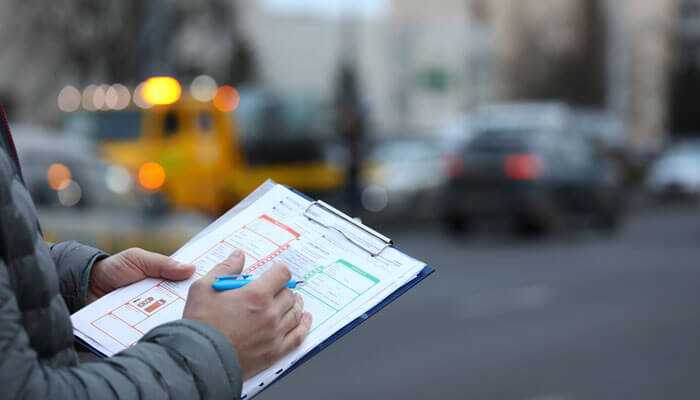Truck and car accidents can be traumatic and nerve-wracking events. Usually, your immediate concerns are the safety of everyone and the severity of the damage to the cars involved. Amidst the confusion, your obligation to report an accident to the police might not cross your mind or seem necessary, especially if it’s a minor accident. However, filing a police report after an accident is a crucial step that you shouldn’t overlook.
In most cases, the police will arrive at the scene of an accident, especially if it happens in a populated area. However, if you’re in a remote location or if the accident occurs late at night, you may need to take the initiative to report it yourself.
Why Filing a Police Report After an Accident Matters So Much
Reporting a car accident to the police provides a non-biased and official account of the incident and influences your insurance claim. It contains all the important information necessary for a lawsuit or insurance claim.
If you want to pursue legal action after an accident, the police report is powerful evidence for your case, so why is it vital to fill out a police report after an accident?
1. Insurance Verification:
Insurance companies need solid proof to process claims. A police report provides important verification of the incident, potential fault, and the individuals involved.
2. Unbiased Verification:
Generally, police officers are competent in their jobs. They are trained to accurately document the details of car accidents. This includes statements from witnesses and drivers, along with their observations about the accident scene.
3. Supporting Evidence:
The police report always turns out to be important to your legal argument. The report serves as an unbiased explanation of the incident, solidifying your case.
Key Elements of a Police Report After an Accident
A police report is more than a document; it’s a detailed snapshot of an accident. With that report in your hand, you’ll find information that’s important to protecting your interests. Here are some elements you’ll find in a police report.
1. Contact Information:
It contains names, phone numbers, and addresses of the drivers and eyewitnesses involved.
2. Incident Details:
This covers basic information such as the time, date, and location of the accident. This information provides a clear record of where and when the incident happened.
3. Diagrams and Visuals:
These include diagrams that illustrate the scene of the accident. In severe cases, the police report may contain videos and photographs taken by the police officer.
4. Statements:
Police reports include the statements made by you, the drivers involved, and eyewitnesses.
Importance of Filing a Police Report After an Accident
An accurately filed police report is an essential document in the context of any legal proceedings following an accident. It serves as an official and unbiased record that has major implications for the parties involved.
So, why is a police report important?
1. Ensuring Transparency
Transparency is maintained in a police report. The police report contains official and non-biased accounts, including officers’ observations and witness statements. This guarantees fairness in the legal process.
2. Protection Against Liability
A well-detailed police report protects individuals from false liability claims. The report serves as a reference point and can be used to verify testimonies or evidence, guiding the court’s determination of fault.
3. Financial Consequences of Filing a Police Report After an Accident
A correctly filed police report is crucial for documenting an accident accurately and its resulting financial costs. This accuracy aids in the easy processing of any insurance claim and clearly establishes the parties liable for injuries and damages.
4. Accuracy in Legal Proceedings Through Filing a Police Report After an Accident
The accuracy of a police report is vital, as it provides a record of facts in legal disputes. Judges and juries rely on police reports to establish the course of events that occurred at the accident scene.



